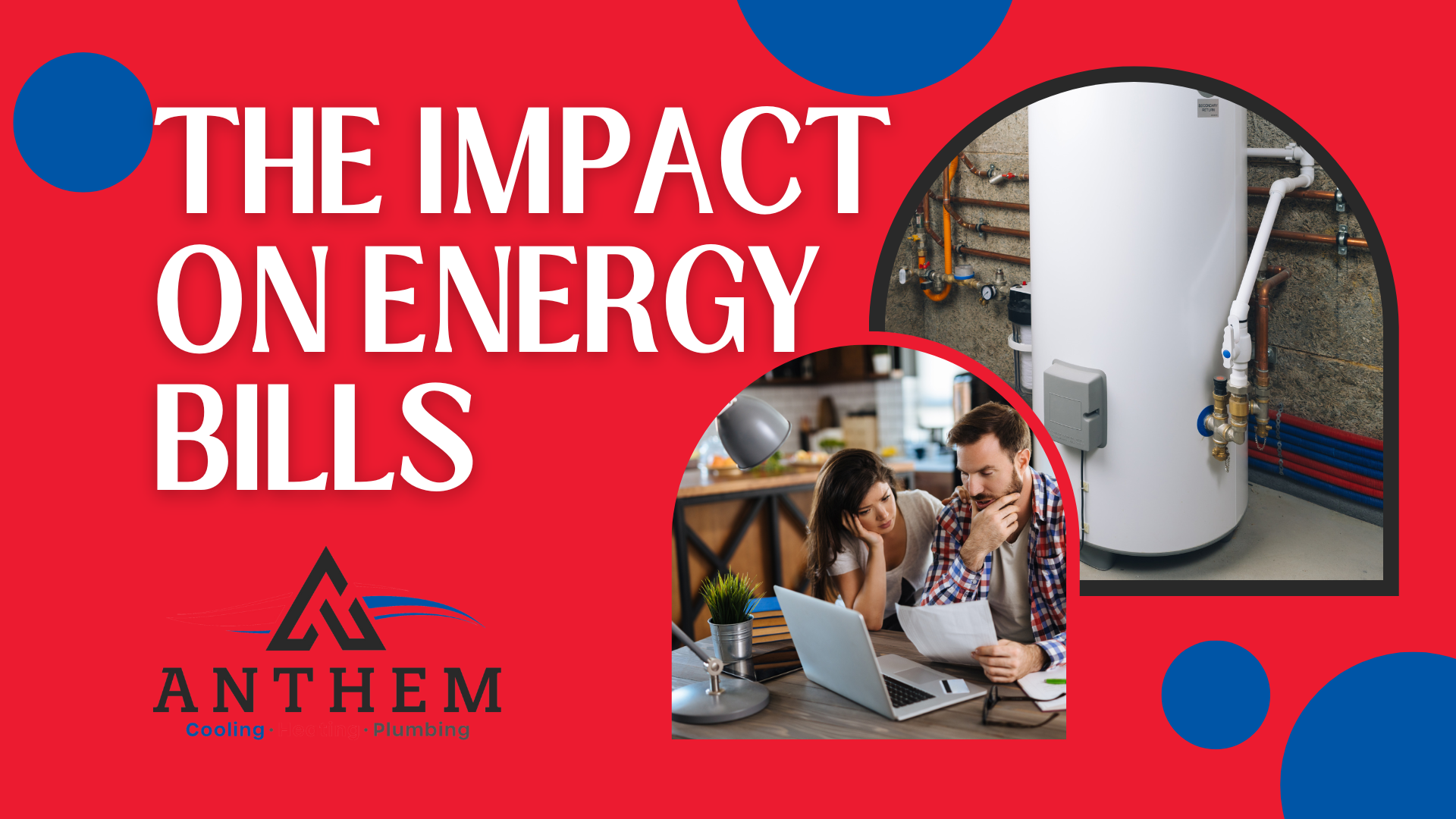
Water Heater Maintenance might not be the most exciting topic, but it’s crucial for homeowners.
The efficiency and longevity of your water heater depend heavily on regular upkeep. And let’s face it, nobody wants to wake up to a cold shower!
Yet many overlook this essential task in their home maintenance routine. Neglecting to maintain a water heater can result in higher energy consumption and costs.
In fact, Water Heater Maintenance, when done regularly, can save you money while ensuring a steady supply of hot water whenever needed.

Understanding Your Water Heater and Its Efficiency
Your water heater, whether it’s a tankless water heater or an older model with a hot water heater tank, is crucial for your everyday comfort. It is responsible for providing you with the much-needed hot water supply for showers, dishwashing, and laundry.
The key to the efficient functioning of these units lies in their operating efficiency. An optimally performing unit can heat up to 70 gallons per hour while consuming less energy than an inefficient system struggling to produce half this amount within the same time frame.
Sediment Buildup: A Threat to Your Hot Water Heater’s Performance
A common issue that impacts both gas heaters and electric heaters over time is sediment buildup inside the tank. This happens when minerals present in hard tap water settle at the bottom of your tank after being separated from heated-up H2O molecules.
This layer acts as insulation between the burner and the stored liquid, which results in two major problems: increased fuel consumption due to longer burning times and decreased capacity because part of the space gets occupied by non-usable debris instead of free-flowing fluid.
The Impact on Energy Bills

An efficient water heater can significantly reduce energy costs since they account for nearly 20% of total household utility expenses, according to U.S. Department of Energy data available online. Inefficient units require more power to generate the same quantity of warm water, thereby increasing monthly expenditures dramatically, especially during winter months when demand peaks.
Furthermore, neglecting maintenance leads to premature failure, resulting in unexpected repair or replacement charges in addition to high operational outlays. Therefore, understanding proper upkeep methods such as flushing at regular intervals is essential for maintaining optimal functionality and extending the lifespan of this valuable appliance.
The importance here isn’t just about reducing costs but also ensuring consistent access to hot and cold water pipes without interruptions caused by issues like temperature control sticking or changes in cold-water supply valve settings that could potentially lead to sudden bursts of excessively scalding liquids flowing through taps around the house.
Key Takeaway:
Keep your water heater running smoothly and efficiently by understanding its workings, tackling sediment buildup promptly, and regularly maintaining it. Not only will this help cut down on energy bills—since heaters account for nearly 20% of household utilities—but also prevent unexpected repair costs or scalding accidents.
.
Signs Your Water Heater Needs Maintenance
Your system should provide consistent hot water without making any unusual noises. If you observe changes such as odd sounds or variations in color or temperature of your hot water supply, it might be time for some much-needed upkeep on your unit.
A decrease in available hot water could also signal a need for attention due to possible sediment buildup inside the tank. This situation calls for immediate action since neglecting this issue may lead to further complications down the line.
Economic Impact: Energy Consumption and Costs
Maintenance doesn’t only affect how well your system functions; it directly impacts operational costs too. Studies have shown that regular flushing out sediments from tanks enhances efficiency, which leads to substantial reductions in overall energy expenses over time.
- An efficient gas or electric heater requires less power than one choked with sediment.
- Saving on utility bills by reducing heat loss through adding insulation reduces heat loss.
- Prolonged lifespan resulting from reduced strain ensures you don’t have frequent replacement costs associated with an older model whose performance has deteriorated drastically due to lack of proper care.
Water Heater Maintenance: Essential Tips for Homeowners

How Often Should You Flush Your Tank?
The frequency of performing this maintenance task depends on several factors, including how much you use your hot-water system and the hardness levels of your local supply. If you live in an area where hard water is common or if there’s high demand for hot water at home, then annual flushing would be advisable.
If not heavily used, every two years could suffice, but remember these are just guidelines – monitoring will help determine what schedule works best for each individual case.
Tools Needed for Flushing Your Tank
- A garden hose long enough to reach from the drain valve on the unit to the desired disposal point outdoors.
- Gloves that protect against potential scalding by any escaping heated fluids during the operation process.
- An adjustable wrench, useful when dealing with stubborn valves needing extra leverage.
Detailed Steps For Performing a Successful Flush
- To begin, ensure power is disconnected entirely before starting, especially if using an electric heater; turn off gas supplies completely too.
- Closing the cold-water pipe halts further inflow into the system, allowing focus solely on the existing contents within the unit itself.
- The last step involves opening the valve located near the base, letting gravity empty out the old fluid safely away via the attached hose. Once drained, close all valves again and refill with fresh, clean cold water.
Remember, though even seasoned DIY enthusiasts sometimes encounter issues they
Key Takeaway:
Keep your water heater running efficiently by regularly flushing out sediment build-up. The frequency depends on usage and local water hardness, but annual or biennial flushes are generally recommended. Use the right tools, follow safety precautions, and don’t hesitate to seek professional help if needed.
Potential Issues If You Neglect Flushing Your Tank
Regular maintenance of your water heater, especially flushing the tank, is crucial for its efficient operation. Ignoring this vital step can lead to several problems that not only impact the performance of your hot water heater but also affect energy efficiency and comfort in your home.
The first issue you may face when neglecting regular flushes is a decrease in operating efficiency. Sediment buildup at the bottom of the tank acts as an insulator between the burner and the water. This forces your system to work harder and longer than necessary to heat up, leading directly to reduced energy efficiency.
A less efficient gas or electric heater results in higher utility bills over time due to increased fuel or electricity consumption caused by sediment accumulation within these types of heaters.
Deterioration Due to Sediment Buildup
Sediments don’t just hinder operational effectiveness; they can cause physical damage over time too. As sediments accumulate inside both gas heaters and electric heaters alike under high temperatures, they harden, forming scale deposits that are corrosive by nature.
This corrosion process could potentially eat away at parts, causing leaks or even complete failure prematurely, making replacement unavoidable earlier than expected. Maintaining optimal functioning conditions of heating systems such as ours, not only here in the Coachella Valley area but also globally, is key to keeping our homes warm and comfortable all year round.
Key Takeaway:
Don’t let your water heater become a money pit. Regular flushing prevents sediment buildup, boosts efficiency, and avoids premature failure. Remember, prevention is better than cure when it comes to maintaining your home’s comfort.
Professional Help vs. the DIY Approach: Weighing the Options
The maintenance of your water heater is a crucial task, and homeowners often find themselves in a dilemma between opting for professional assistance or taking on the challenge independently. Both paths have their unique advantages and potential pitfalls.
A Closer Look at Professional Assistance
Opting for professionals to handle your hot water heater maintenance can bring several benefits to the table. Experts possess comprehensive knowledge about different types of heaters, including gas heaters and electric ones, ensuring thorough inspections that could identify issues before they escalate into costly repairs.
Beyond technical expertise, safety during procedures involving hot and cold-water pipes is another compelling reason why you might consider hiring experts. They also adhere strictly to local regulations while carrying out all operations efficiently, saving you valuable time.
Diving Into The DIY Methodology
If cost-saving measures rank high on your priority list, then embracing a do-it-yourself approach may be more appealing. Regular checks like monitoring changes in water temperature, inspecting the condition of the drain valve, and adding insulation reduces heat loss from tanks, improving efficiency and thereby reducing energy costs over time. It’s an opportunity to gain a deeper understanding of the workings of your own appliance, empowering you to tackle minor glitches early on without needing to call an expert every single time.
Deciding Factors: What To Consider?
Several factors should influence the decision-making process when it comes down to choosing between professional help versus going the solo route. These include the level of comfort in handling the technical aspects involved in maintaining the system and the available spare time dedicated to these activities, among others.
Key Takeaway:
Keep your water heater running smoothly by either hiring a professional for thorough inspections and adherence to safety regulations, or embrace DIY methods like regular checks and insulation. Whichever path you choose, remember that neglecting maintenance can lead to higher energy bills and potential home damage.
Conclusion
Optimizing efficiency and prolonging the lifespan of your water heater are key elements of maintenance. Understanding how your water heater works, recognizing signs of trouble, and knowing when to flush the tank can make all the difference in its performance.
Flushing your water heater tank is an integral part of routine maintenance that helps remove sediment buildup and enhances overall efficiency. Failing to flush the tank, however, could result in decreased efficiency, increased energy bills, and potential harm to your system.
The choice between a DIY approach or seeking professional help for maintaining your water heater largely depends on factors like cost implications, time considerations, safety concerns, and convenience factors. Both approaches have their pros and cons but ultimately aim at keeping your unit functioning optimally.
If you’re unsure where to start with maintaining or repairing your HVAC systems, including water heaters – don’t worry! At Anthem, we are here to assist you every step of the way with our expert services tailored specifically to your needs!








No comment yet, add your voice below!